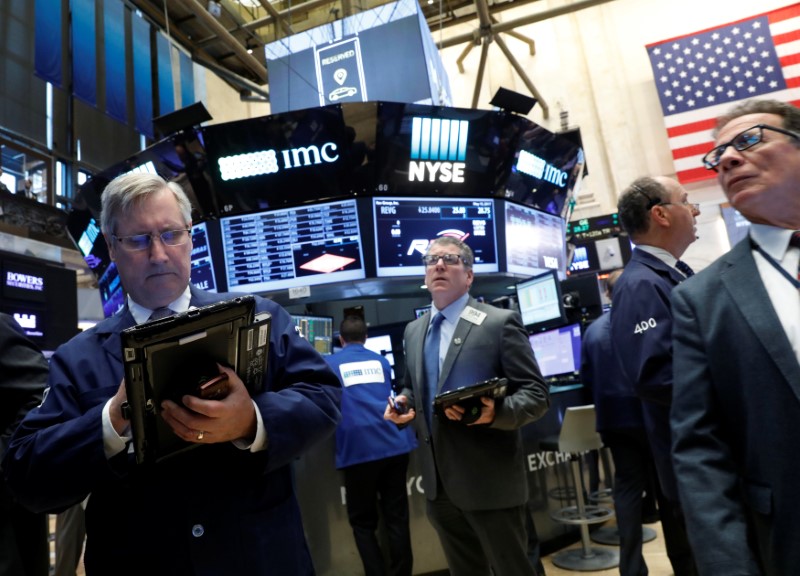By Rodrigo Campos
NEW YORK (Reuters) - The U.S. dollar index touched its lowest level since early November on Tuesday, hurt by weaker-than-expected U.S. housing data and as political turmoil in Washington raised anew concerns about the outlook for passing expected legislation.
A rally in the euro was reinforced by dollar losses, prompted by reports that U.S. President Donald Trump disclosed highly sensitive intelligence information to senior Russian officials at a meeting last week.
The disclosure adds to concern over the administration's chances of passing legislation, including tax reform, that has been priced in partly by financial markets. Major U.S. stock indexes remain at or near record highs, supported by the strongest earnings season for S&P 500 components since 2011.
The dollar fell even after U.S. manufacturing production recording its largest increase in more than three years.
The downtrend in the U.S. currency could extend further, according to Boris Schlossberg, managing director of FX strategy at BK Asset Management, given the potential for further political fallout relating to Trump's intelligence disclosure.
"It seems like progressively every single day it gets more and more beyond any sense of normal leadership and ultimately that kind of political volatility does translate into economic volatility," Schlossberg said.
The dollar index fell 0.73 percent, with the euro up 0.99 percent to $1.1082.
The dollar index had reached 14-year highs in early January on the view that Trump's plans for tax cuts and infrastructure spending would boost growth and inflation. It has now fallen four consecutive sessions, hitting six-month lows.
The Japanese yen strengthened 0.63 percent versus the greenback, at 113.08 per dollar, while sterling was last trading at $1.2916, up 0.18 percent.
On Wall Street, the S&P 500 and Nasdaq Composite touched record highs but the S&P retreated to trade slightly negative. Technology stocks remain a key engine of gains for the Nasdaq and S&P, but traders are concerned about the feasibility of the Trump agenda of tax cuts and deregulation.
"There's a lot of political data but not a lot of economic data that's changing the landscape," said Paul Nolte, portfolio manager at Kingsview Asset Management in Chicago.
The Dow Jones Industrial Average fell 2.19 points, or 0.01 percent, to 20,979.75, the S&P 500 lost 1.65 points, or 0.07 percent, to 2,400.67 and the Nasdaq Composite added 20.20 points, or 0.33 percent, to 6,169.87.
The pan-European FTSEurofirst 300 index rose 0.08 percent and MSCI's gauge of stocks across the globe gained 0.27 percent. Emerging market stocks rose 0.48 percent.
Oil prices extended losses after API data showed an unexpected build in U.S. crude inventories.
U.S. crude fell 1.27 percent to $48.23 per barrel, and Brent was last at $51.22, down 1.16 percent.
U.S. Treasury yields fell after the housing data added to recent soft economic news that has raised new doubts over how many times the Federal Reserve will raise interest rates this year.
Benchmark 10-year notes last rose 4/32 in price to yield 2.3257 percent, from 2.338 percent late on Monday.
Spot gold added 0.5 percent to $1,236.71 an ounce. U.S. gold futures gained 0.56 percent to $1,236.90 an ounce.
Copper lost 0.04 percent to $5,610.85 a tonne.
